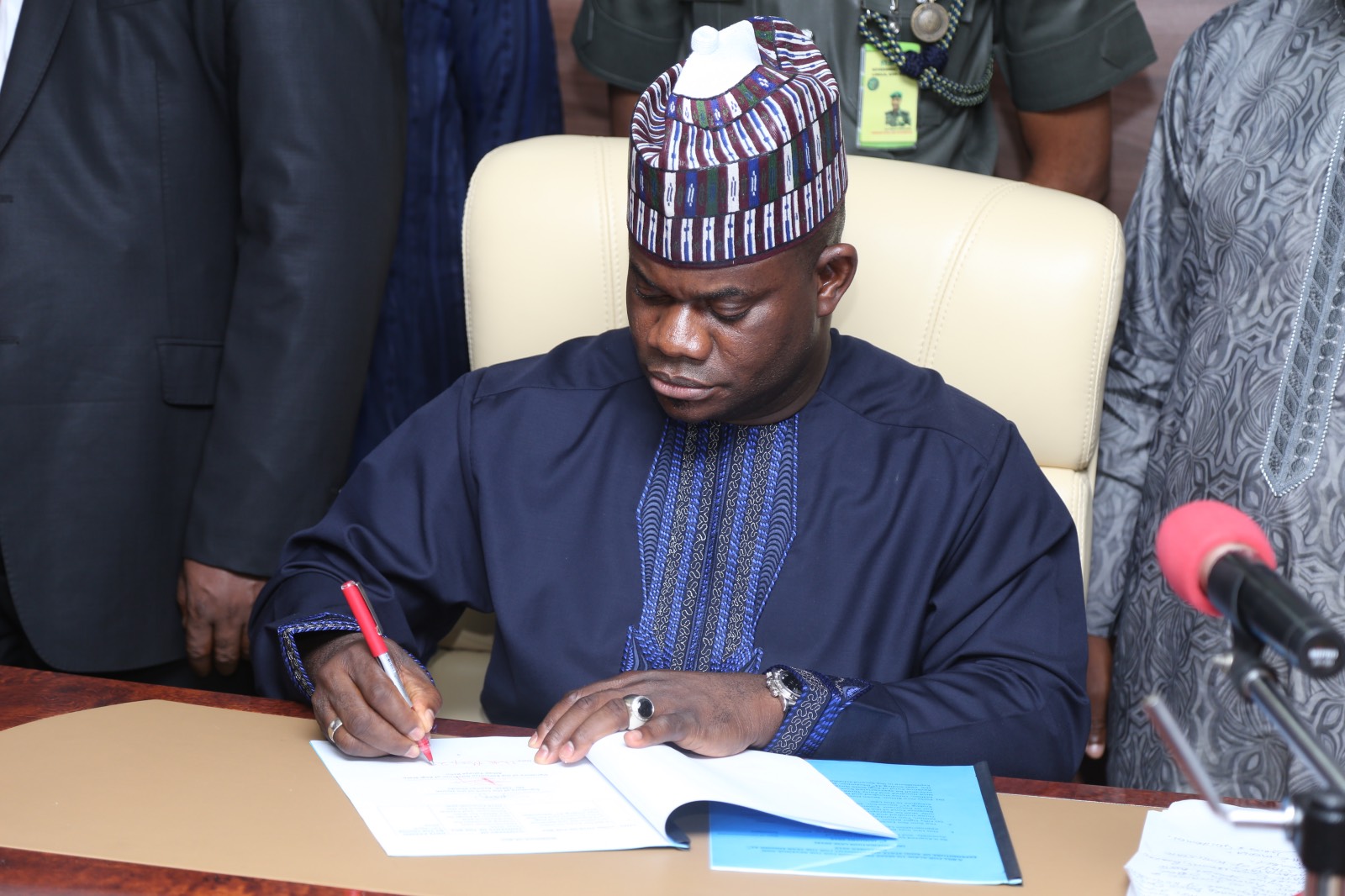ABUJA, Nigeria — The Economic and Financial Crimes Commission (EFCC) has presented startling details in the ongoing trial of former Kogi State Governor Yahaya Bello, with a prosecution witness revealing that ₦1,096,830,000 was withdrawn from the Kogi State Government House administration account within just four days.
Mashelia Bata, a compliance officer at Zenith Bank’s Maitama Branch, testified on Thursday, June 26, 2025, before the Federal High Court in Abuja as the fourth prosecution witness.
Bello is facing 19 counts of alleged money laundering, totalling ₦80 billion.
Led in evidence by prosecuting counsel Kemi Pinheiro (SAN), Bata confirmed that the bank attached valid certificates of identification to statements of accounts presented in court, as requested via subpoena.
The court admitted the Kogi Government House account and six others into evidence.
Accounts admitted as exhibits include those belonging to Adamu Jagafa Ishaya, Whales Oil and Gas, Jimeda Properties Nigeria Limited, and Alyeshua Solutions.
Bata testified that the withdrawals took place between January 30 and February 2, 2018, a period during which the Central Bank of Nigeria’s pre-cashless policy guidelines imposed withdrawal thresholds of ₦500,000 for individuals and ₦10 million for corporate entities.
Referring to a specific transaction on May 23, 2016, involving one Abdulsalami Hudu, Bata explained: “It is a cash withdrawal of ₦10 million in accordance with the then maximum threshold allowed for cheque withdrawal per transaction.”
He also read aloud the pattern of inflows and immediate outflows from the government account between May 2 and May 19, 2018, pointing out that most credits were quickly followed by cheque-based debits.
Pinheiro further tendered account opening documents and bank statements spanning 2016 to 2023 for the court’s review.
Earlier in the proceedings, Justice Emeka Nwite ruled against an application by the EFCC seeking to cross-examine one of its own witnesses, Nicholas Ojehomon, an internal auditor at the American International School, Abuja (AISA).
Ojehomon had previously testified that no wire transfers were received from the Kogi State government or its local councils towards the tuition fees of Bello’s children.
Ruling on the matter, Justice Nwite said the EFCC had no legal basis to cross-examine its own witness without first declaring him hostile.
“I must agree with the learned counsel to the defendant that the EFCC can only cross-examine its own witness after it has declared such witness a hostile witness,” he stated.
He added that while the court would allow the EFCC to re-examine the witness, this must be limited to pages 1, 14, and 15 of Exhibit 19, as referenced by the defence during questioning.
“The prosecution is not allowed to re-examine the witness outside the pages prescribed,” the judge ruled.
The trial continues as the EFCC seeks to establish its case against Bello, who is accused of orchestrating a complex network of financial transactions to siphon public funds during his tenure as governor.







